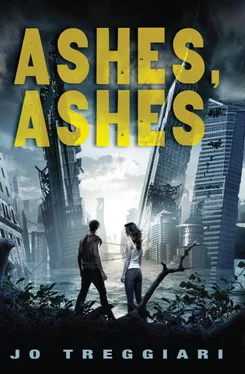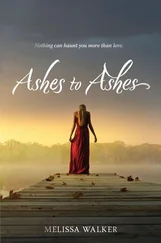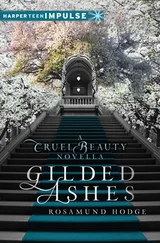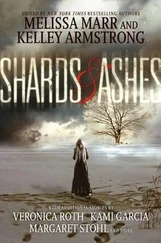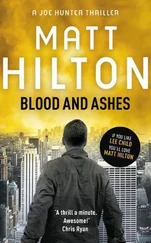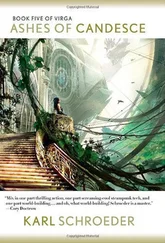The night wrapped around her, and with a soft sigh the rain began to fall again, passing from sprinkle to gushing torrent in a few seconds. She moved forward at a jog, then an all-out run, frantic suddenly to reach the shelter of her camp. But then she paused, fiercely reminding herself to be cautious and check the silhouetted hummocks. She added them up and felt her heartbeat calm. Twenty-three hunched shapes, and that one fallen tree stump that looked like the curved back of a breaching whale—everything as usual. Lucy started forward again. It was impossible to move quietly. The ground was covered in puddles, some treacherously deep. She splashed forward, hands out in case she fell on the slippery grass, muddy streams on either side of her feet. Around the circumference of her camp, barely twenty yards from her concealed front door, dozens of paw prints were gouged into the wet soil.
Casting one final look around, she bolted the last ten feet to her door, ignoring the pain in her ankle. She dragged the willow screen aside and ducked inside. Her shelter was smoke-filled and thick with the briny smell of stewing turtle. She pulled her sweatshirt sleeve over her hand, picked up the pot by the scalding handle, and moved it from the smoldering fire, setting it on the ground. She raked the meager embers with a stick and added the last of the wood to the pile, then sank down, holding her hands out to the pitiful warmth. She was soaking wet. Her waterlogged sweatshirt dragged at her body; her filthy jeans were pasted to her legs. Her toes squelched in the two inches of water inside her boots, and she could smell the stink of her sodden socks even without taking her boots off. Her hands shook, and then the tremors traveled swiftly up her arms and down her spine. She knew the smart thing would be to strip, dry herself off as best she could, and then put on a change of clothing, but she was too exhausted to do more than stare at the flames and shiver. Her fingers were slathered with mud and blood and covered in scratches. Her whole left side, where she had fallen from the tree, felt bruised and raw. She peeled her sweatshirt and tank top up. Furrows of skin were scraped from her ribs and along her forearm. Her shoulder was bruised; purple bloomed above the bone. Lucy looked at her upper arm: smooth, unblemished except for four freckles set in a line as if someone had pierced her with the tines of a fork. No scars. She pulled her shirts back down, gasping as the cold, wet material touched her body. She wrapped her arms around her chest and rocked back and forth, slitting her eyes against the tendrils of smoke that wreathed the floor.
The rain pounded the branches above her. Occasionally a drop would force its way through the densely woven wood and fall on her head. She had a plastic tarp she could sleep under, but it was splotched with mildew and it crackled and rustled and slid away from her sleeping bag. She always had nightmares when she used it, waking in a confused tangle and feeling as if she were being suffocated.
Seeing another person, talking to Aidan, had thrown Lucy off balance. She was perfectly fine living on her own, relying on no one else, but she’d almost forgotten that there were other people out there. It was easier if she could pretend that she was the only survivor. Then her mind was completely occupied with foraging and hunting and all the small problems she had to solve, and she’d crawl into her sleeping bag at the end of another long day with no troubling thoughts. But now she was remembering how things used to be, and it was almost like a part of her, the human part, which was social and—she hated to admit it—craved conversation and interaction, had awoken again.
Lucy hobbled over to her backpack, unbuckled it, and pulled it open. She pushed her hands down to the very bottom, letting her fingers dance over her flint and tinderbox, her journal, a dead flashlight, her transistor radio, one last precious book of matches, until she felt the smooth leather cover. She hardly knew why she had kept it when so much of her life before was strewn in piles on the floor of her New Jersey home. The last weeks there were a blur in which only endless phone conversations with her parents’ doctors and the countless forms to be signed stood out in her memory. A jumble of decisions were made while she could scarcely remember her own name, until at last the bodies were packed into the ambulance and taken away, leaving a silence that felt heavy and buzzed in her ears. She’d scanned her mother’s phone book, called women she remembered as being kind, but the phone rang and rang and no one ever picked up. And after that the house was almost unbearable, and the neighborhood she’d grown up in felt empty and forlorn, like a ghost town. She had become increasingly nervous, jumping at sounds, scared of the lights that came on in the adjacent houses in the middle of the night, the strange, silent men in hazard suiting who seemed to be looking for something, the white vans they drove. Lucy had taken to sleeping on the cold linoleum floor in the mudroom, which had no windows but did have a door that double-bolted and let out into the yard with its thick screen of cedar hedges. She’d listened to reports on the solar-powered radio her dad had kept on a shelf by the cellar door with stubs of emergency candles and freeze-dried camping meals. The college stations she was familiar with were not transmitting, and one by one the big news stations stopped, until finally there’d been nothing but a pirate channel, fuzzy and frustrating to pick up strongly. But in the early days, she’d lie on an inflatable mattress with the radio pressed to her ear, happy to be hearing another human voice. The host, who called himself Typhoid Harry, had been the first and only person to explain the plague in words she could understand. From him she’d learned that most people had contracted the plague in the first wave of contagion. Out of every one million people, 999,999 had died. Most of the survivors were picked off by the second wave. However, there were a scant few who seemed protected by the routine childhood vaccine given out with those for chicken pox, measles, polio, and bird flu, and an even fewer number who somehow survived the disease, horribly scarred and insane—the S’ans.
On the day she’d left for good, she’d run from room to room, breathless, crying jagged sobs that hurt her chest, careful not to look at too much, but becoming transfixed by the sights of her mother’s faded dressing gown still hanging on its hook on the bedroom door, her shawl draped on her favorite armchair, her father’s coffee mug on the draining board in the kitchen. She’d spent most of the time in her dad’s home office searching for she didn’t know what, catching the lingering scent of his aftershave, and finding the hunting knife and sheath in the bottom drawer of the desk.
Lucy had taken the knife not so much for defense. At that point everything was odd, surreal, but she had no notion of any physical danger to herself. She’d slipped it into her bag with her mother’s shawl, a box of assorted freeze-dried food, and a bottle of spring water, because it was so unlike her father to own a weapon. He was all about leather attachés and legal briefs and dark, perfectly pressed suits. It was a puzzle to be gnawed on.
And she had taken her tenth-grade yearbook, too, even though she’d hated school, never infiltrating the groups of popular kids. The yearbook was a superficial slice of high school life that completely ignored the pain and boredom of it. She couldn’t help thinking that Aidan would have fit in perfectly at her school, although she had to admit there was an edge to him that was different from the preppy, stuck-up boys she used to have classes with.
She opened the yearbook. The blank pages in front and back were empty of those insipid Have a great summer ! messages. Inside she’d scrawled over pictures of the hair-sprayed, shiny lip-glossed, made-up girls in her class with a big, thick, black pen, giving them punk hairdos and raccoon eyes and thought bubbles that said stuff like “Do you think I’m pretty?” Somehow their deaths had changed it all. The yearbook touched on the life before. It had become something to remind her that things had been normal once.
Читать дальше
